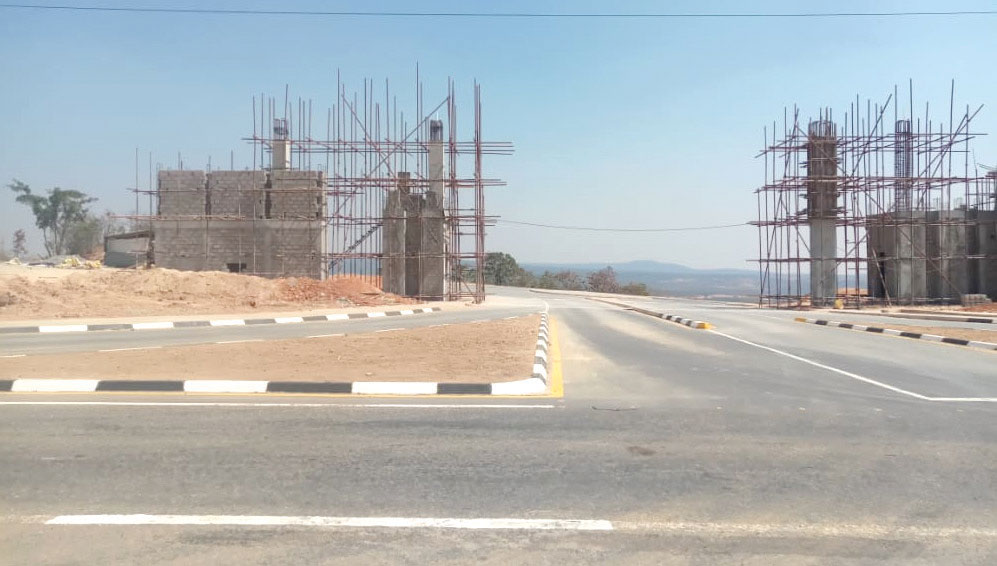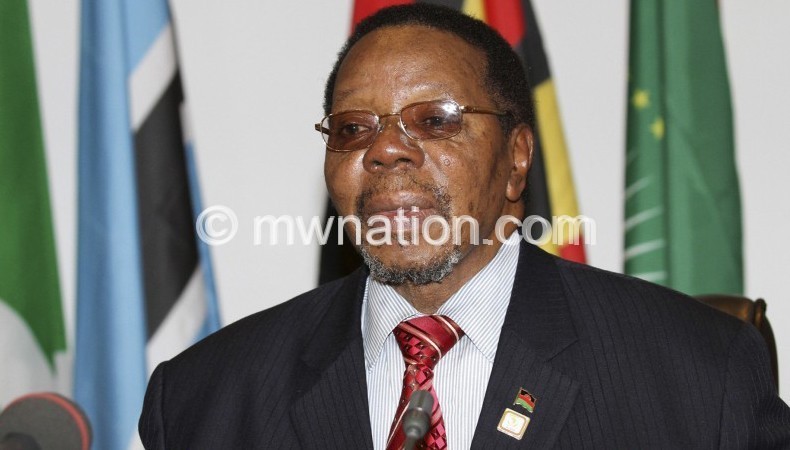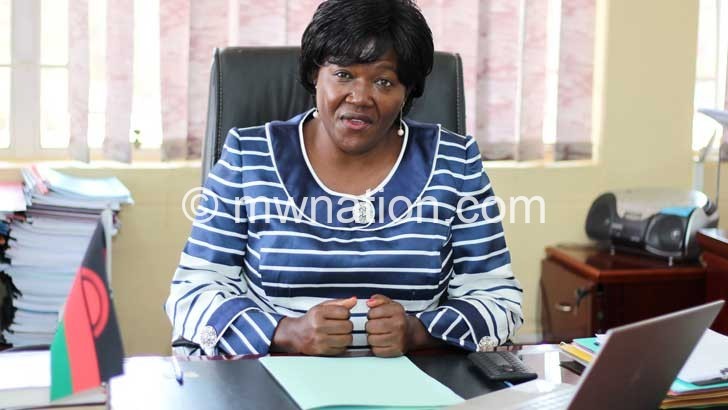‘Varsity projects flop
By now, Malawi was supposed to have six new public universities spread across the regions but what appeared to be a promising plan seems to have crashed.
Yet for the past 10 years, taxpayers have been funding a fully–fledged parastatal solely put in place to establish these new universities.

Apart from funding the parastatal, taxpayers have spent a fortune on groundwork, which includes identification of sites, development of programmes and curricula for the new universities. They have also met other expenses incurred by a committee set up to champion the cause.
Our investigations based on review of documents and appointed an 18–member PUC– an assembly of professionals who included President Chakwera, Mzuzu University vice-chancellor Professor John Saka, Dr. Emmanuel Fabiano, Professor Brown Chimphamba and the late Professor Matthews Chikaonda, among other top academicians.
In a confidential memo (File ref. 7/1/10), dated November 10 2010, Peter Mutharika as minister of Education then did not just propose names of who should be in the PUC, but further suggested the creation of a secretariat to service the committee and that is how Mudep came into being.
Almost 11 years after, what is there to show?
After Bingu’s death in April 2012, two presidents—Joyce Banda and Peter Mutharika—have come and gone and now Lazarus Chakwera is into his second year, yet apart from Must and Luanar which were achieved during Bingu’s era, there is hardly anything to show for it.

While Chakwera’s administration has expressed intention to continue with Mombera University, renamed Inkosi M’mbelwa University, it has not said anything about the proposed universities in Bangula, Mangochi, Nkhotakota and Karonga.
In a written response, Secretary for Education Chikondano Mussa said government’s focus in the next 10 years is on Inkosi M’mbelwa University which casts doubt if the other universities will ever be achieved.
But she also said for the institutions of higher learning in Nkhotakota and Karonga, land was already identified in consultation with chiefs and community leaders while for the University of Marine Biology in Mangochi, in addition to land identification, curriculum had also been developed.
“In the first 10-year Implementation Plan for MW2063 (the MIP-1), Government has prioritised the construction of Inkosi M’mbelwa University in Mzimba, before looking into the other universities in due course, which will be done in accordance with the MW2063 implementation plans,” said Mussa, stressing that “through delinking of some public universities and creating new ones, more space is being created”.

The new government’s lack of interest to carry on with the university projects is attested to by the fact that there is no PWC in place since they came into power last year, leaving Mudep almost without anything to do.
Mudep acting programme manager Fanny Mthunzi, in an interview recently, admitted how difficult it is for them to make strides in the absence of the PUC, adding that this is one of the issues they presented during their appearance at the newly-introduced Presidential Delivery labs.
She said: “The working committee is a decision-making body for the secretariat; therefore, its absence, greatly affects progress.”
In the current national budget the institution has been allocated just about K100 million compared to the previous year when it got about K2.4 billion, which it used for construction of some road network at Mombera University, according to programme-based document (5).
Mthunzi further conceded that since 2014 the secretariat has been underfunded to the extent that it has only been able to do preparatory works, and not the actual construction.
How regime-change affected the project
According to chairperson of the 18–member PWC appointed by Bingu, Ambassador Ron Nkomba, between 2010 to early 2012, the committee made a lot of progress and there were all indications that government was set to achieve the goal.
But after Bingu’s death on April 5 2012, the successive governments abandoned the project. The PWC did not just fail to secure an appointment with the new president [Joyce Banda] to brief her on the progress but it also got communication from Secretary for Education that the new government would not continue with the project.
“I wrote the principal secretary in the Ministry of Education responsible for higher education to seek guidance on how to proceed with the project and it was at this point that we got a communication that no more new public universities. Instead, available resources will go towards upgrading and, if necessary, expansion of existing public universities,” explained Nkomba whose statement was corroborated by two other members of his committee who did not want to be named.
The members said when Peter Mutharika became President hope was rekindled that the project would take shape, but his administration behaved contrary to expectation.
Said a member of PUC, who asked not to be indentified: “This is a committee he [Peter] had recommended to Bingu but when he became President, he completely ignored it and simply picked one member to head a new task force that would be serviced by Mudep. His argument was that this committee was too big and expensive to manage.
“But if that was the reason, then he would have simply picked chairpersons of sub-committees to form a new task force and in so doing there would be institutional memory. But we learnt later that even this new government was not really interested to implement this project.”
While Nkomba could neither deny nor confirm the claim, he said he did not think the committee was too big “given the nature of the assignment which really demanded high level technical expertise”.
To demonstrate that the Peter Mutharika administration was equally not for the project, in the first three years (2014– 2017), government had allocated K3.3 billion to Mudep, yet only disbursed about K200 million, largely for the operations of the secretariat.
There was an improvement in funding in 2018/19, which was also a campaign year, when Mudep received K2.4 billion which led to construction of some roads within the Inkosi M’mbelwa Campus.
“One sad lesson I have learnt is how good projects die because of politics and regime change. We must re-organise ourselves and have development projects continue even when administrations change because these are for the good of the people,” said Nkomba who also chaired a committee that established Mzuzu University.
He further argued: “Think of how much we spent in setting up this project? All that investment cannot go to waste. Good enough a lot of ground work has already been done, so it is easier to continue than abandoning the project. That will be a waste of resources.”
Confusion that is Mudep
While Mudep was established as a 10-year programme, specifically created to establish the new universities, it has existed for about 11 years now, enjoying the status of a parastatal.
Going by official documents, Mudep has staff working on non-established positions, meaning it is a temporary arrangement to serve a particular interest.
While this is just a programme, with non–established posts, the organisation appears under subvented organisations, with its own vote in the national budget and official documents we have seen indicate that it has SC61 as its statutory corporation number.
But a lawyer in the Ministry of Justice described this as an anomaly.
“A statutory corporation is established by law and if Mudep is appearing as such, without a law, then there is an error,” said the lawyer. “In fact, Mudep as a programme was not supposed to be allocated the corporation status.”the Department of Human Resource Management and Development spokesperson Ken Ntonga described Mudep as a project.





